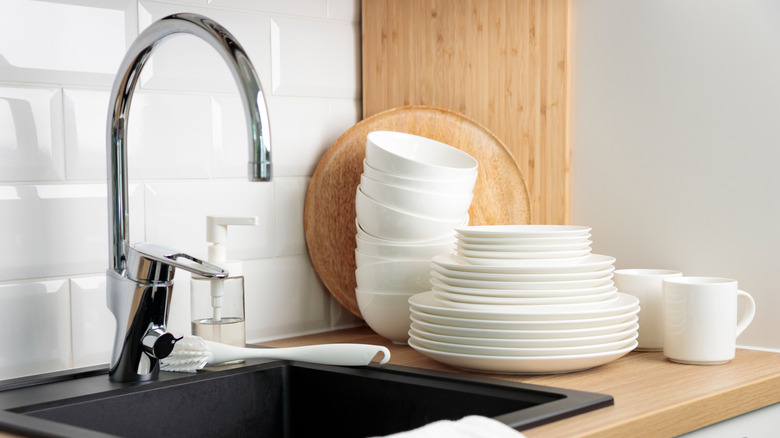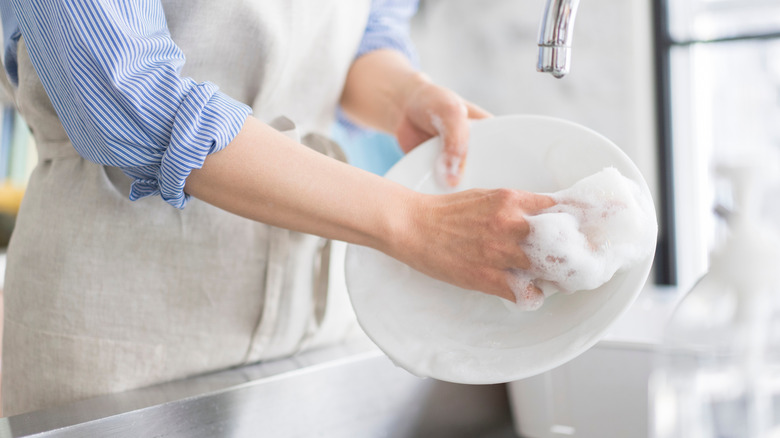Do You Have To Wash Brand New Dishes Before You Use Them?
It's a common experience: You bring home a bundle of brand-new dishes or cooking implements — something special for a fun dinner party, maybe. A few replacements for chipped flatware. Some fancy new kitchen tools. Here's another common experience, at least in my household: You feel you should wash those dishes or utensils straightaway, and yet ... wouldn't it be easier just to put them in the cupboard? Aren't they brand-new, after all? Do you really need to wash them?
In a word: Yes. It's a good idea to wash anything that enters your kitchen the first time, even if skipping this step probably won't kill you. Sometimes manufacturers put "finishing chemicals" on dishes that could make you sick if ingested. Other times, pans and plates may have collected dust during manufacturing or shipping that can produce an acrid smell when heated.
With the broad caveat that it's important to wash all new kitchenware, you can think of products in two categories: those that come packaged (like a new food processor) and those that are sold loose — say, a pair of tongs hanging on the wall at your local big box. This second category is especially important to clean before using. In addition to any manufacturing residue, you're also dealing with the germs left behind by whoever's happened to touch those tongs while browsing the store selection. How many people have touched them? How long has it been since any of those people washed their hands? Better safe than sorry.
What's the best way to wash newly purchased dishes?
The good news is that you don't need to do anything out of the ordinary to wash new kitchen items. The manufacturer's instructions will tell you what you need to do. A ceramic plate, for instance, will dictate a much different course of action than a cast-iron skillet: The manufacturer will probably let you throw that plate in the dishwasher, whereas everybody knows — or they should know — that the dishwasher is a no-go zone for cast iron. Here's the best way to clean cast iron.
Otherwise, plain old soap and hot water is a surefire way to go. Some still prefer products labeled "antibacterial," but the U.S. Food and Drug Administration has looked askance at antibacterial soaps, finding little evidence that they prevent illness, while they may contain chemicals that could be harmful.
If you're feeling concerned and want to take an extra step here, you can sanitize your new dishes with little effort. First, wash them as usual in hot, soapy water. Then, fill the sink or a large dishpan with three gallons of cool water and add two tablespoons of bleach. Soak your clean dishes in the bleach solution for two minutes before removing them — using gloves to protect your hands — and letting them air dry; no need to rinse them again. Now, the time you've been waiting for: You can put those beautiful new kitchen items away in the cupboard where they belong.

